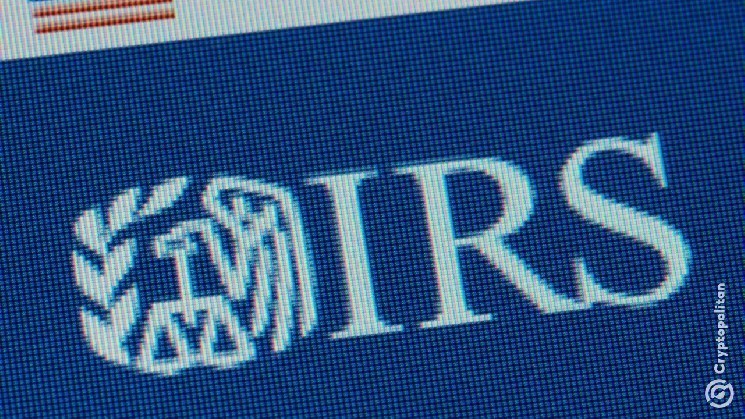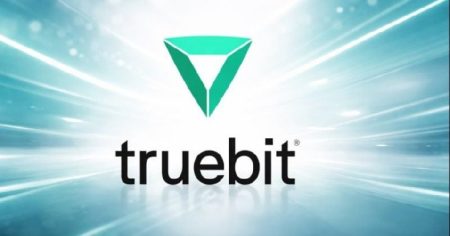IRS Under Fire for Crypto Staking Tax Policies as Industry Demands Reform
Mounting Pressure on IRS to Rethink Cryptocurrency Staking Tax Rules
The Internal Revenue Service finds itself at the center of intensifying criticism over its approach to taxing cryptocurrency staking rewards, with calls for reform coming from an increasingly vocal coalition of industry groups, lawmakers, and market participants. Critics argue the current tax framework is fundamentally unfair, creates excessive compliance burdens, and ultimately stifles innovation in the rapidly evolving digital asset ecosystem.
The tax authority now faces a complex challenge navigating both established tax principles and emerging technological realities, as pressure mounts to develop more nuanced and equitable tax rules for cryptocurrency staking activities. This tension highlights a critical juncture for the agency as it attempts to balance revenue collection with fostering innovation in a transformative financial technology sector.
“The current framework creates significant practical problems for taxpayers engaged in staking activities,” explains Patricia Mendoza, cryptocurrency tax specialist at Digital Asset Advisors. “When individuals are forced to pay taxes on unrealized gains from staking rewards that fluctuate wildly in value, they’re essentially being taxed on paper wealth that may disappear before they can actually access it.”
Senator Young Challenges IRS to Reform Cryptocurrency Staking Taxation
In a significant development, Senator Todd Young has formally petitioned Treasury Secretary and Acting IRS Commissioner Scott Bessent to reconsider the agency’s 2023 rule governing the taxation of cryptocurrency staking rewards. The Senator’s letter specifically criticizes the current system for forcing users to pay taxes on unrealized gains—a practice he argues is fundamentally inconsistent with broader tax principles and creates undue hardship for participants in the digital asset economy.
Senator Young further noted that the existing regulatory uncertainty makes it exceptionally difficult for lawmakers to accurately forecast revenue from future digital asset legislation, complicating the already challenging process of fiscal planning. This unpredictability represents yet another layer of complexity in an already intricate regulatory landscape.
The core issue stems from the volatile nature of staking rewards, whose value can fluctuate dramatically within short timeframes. Unlike traditional investment income, converting these rewards into cash often involves multiple steps and potential barriers, creating a scenario where taxpayers may face substantial tax liabilities on assets they cannot readily liquidate. Industry advocates have consistently argued that taxation should be triggered only upon the sale or exchange of staking rewards—a position that aligns with traditional tax treatment of capital assets.
The situation has grown more complicated following the IRS’s recent decision to permit large cryptocurrency trusts and exchange-traded funds (ETFs) to stake digital assets without losing their preferred tax classification. This new guidance, outlined in Revenue Procedure 2025-31, creates what many perceive as a two-tiered system favoring institutional investors over individual participants, as it fails to clarify whether retail investors must follow the same tax protocols.
Adding to the regulatory pressure, the Trump administration released a comprehensive report on digital assets in July 2025 that explicitly called on the IRS to provide clearer, simplified rules to prevent taxpayer confusion and unexpected tax liabilities—a recommendation that aligns with industry demands for greater regulatory clarity and consistency.
IRS Creates Safe Harbor for Crypto Trusts While Individual Investors Left in Regulatory Limbo
On November 10, 2025, the IRS issued Revenue Procedure 2025-31, establishing a regulatory framework that allows publicly traded trusts and ETFs to engage in staking activities without jeopardizing their favorable tax status. This guidance enables these institutional entities to earn staking rewards and distribute them to investors while maintaining regulatory compliance—a development that potentially expands investment opportunities in the digital asset space.
“This guidance represents a significant step forward for institutional participation in cryptocurrency staking,” says Michael Chen, blockchain policy director at the Digital Innovation Alliance. “However, it also highlights the disparity in treatment between large financial institutions and individual participants in the crypto economy, creating legitimate questions about equitable tax policy.”
While the new rules provide welcome clarity for institutional investors, they come with stringent requirements. Qualifying trusts must have shares traded on a national securities exchange, promoting market liquidity and transparency. Additionally, trusts are limited to holding cash and a single digital asset, with all assets required to be maintained by a qualified custodian controlling the associated blockchain addresses.
To protect investor interests, trusts must secure immunity from “slashing” penalties—punitive measures sometimes imposed by blockchain networks on validators for technical violations or network unavailability. This requirement aims to shield investors from losses resulting from operational issues beyond their direct control. Furthermore, to maintain investment consistency, trusts must receive staking rewards exclusively in the form of the digital asset they already hold, preventing strategic shifts that might alter the fund’s fundamental character.
In a concession to existing entities, the IRS permits trusts to amend their governing documents to authorize staking activities within nine months of the guidance release without affecting their tax classification, provided they adhere to all other stipulated requirements. This allowance facilitates adaptation to the new regulatory framework without triggering adverse tax consequences.
Institutional Benefits Create Disparity as Individual Investors Face Continued Tax Uncertainty
Treasury Secretary and Acting IRS Commissioner Scott Bessent has framed the new guidance as beneficial for retail investors, arguing that it enables ETFs and publicly traded trusts to invest in staking activities and share the resulting rewards with individual participants. Bessent further contends that the clear regulatory framework encourages institutional investment in domestic staking activities rather than driving capital to offshore platforms operating under different regulatory regimes.
“The fundamental issue here is one of consistency and fairness,” explains Dr. Eleanor Wright, professor of tax law at Capital University. “When institutional investors receive preferential tax treatment compared to individuals engaging in identical activities, it creates legitimate questions about whether our tax system is equitably designed and administered.”
Despite these institutional advances, individual cryptocurrency holders remain subject to taxation on unrealized staking rewards—a stark contrast to the more favorable treatment now afforded to large funds and trusts. This disparity has intensified criticism from tax experts and cryptocurrency advocates who argue that the current framework unfairly disadvantages retail participants in the digital asset ecosystem.
The divergent regulatory approaches have created a situation where Revenue Procedure 2025-31 simultaneously encourages institutional participation in staking markets while potentially discouraging individual involvement due to tax uncertainty and compliance burdens. This tension highlights the broader challenges facing regulators as they attempt to integrate emerging technologies into existing tax frameworks designed for traditional financial instruments and investment structures.
Industry Awaits Comprehensive Reform as Regulatory Disparities Persist
As the cryptocurrency staking landscape continues to evolve, market participants across the spectrum await further clarification from the IRS regarding the tax treatment of staking rewards for individual investors. The current regulatory disparity between institutional and retail participants has created a sense of urgency among industry advocates pushing for comprehensive reform that would establish consistent principles applicable to all market participants regardless of size or organizational structure.
“What we’re seeing is a regulatory framework developing in real-time as authorities grapple with the unique characteristics of digital assets,” notes Jonathan Harris, cryptocurrency policy analyst at the Emerging Technology Research Institute. “The challenge lies in developing rules that both protect tax revenue and recognize the novel attributes of blockchain-based assets that don’t always fit neatly into traditional tax categories.”
The growing discord between institutional and individual tax treatment has prompted speculation about potential congressional intervention to establish a more equitable framework. Legislative proposals focused on creating technology-neutral tax policies that apply consistent principles across all forms of digital asset activities have gained traction among blockchain advocates and tax reform proponents alike.
As institutional investors position themselves to capitalize on the regulatory clarity provided by Revenue Procedure 2025-31, individual stakeholders continue to navigate a more ambiguous landscape fraught with compliance challenges and potential tax liabilities. This divergence not only raises questions of fundamental fairness but also potentially influences market participation and innovation trajectories within the rapidly evolving digital asset ecosystem.
The ultimate resolution of these competing interests will likely shape the future of cryptocurrency staking in the United States, determining whether it evolves as an accessible financial activity open to broad participation or remains primarily the domain of institutional investors equipped to navigate complex tax requirements. For now, stakeholders across the cryptocurrency landscape watch closely for signals of further regulatory development, hoping for a framework that balances revenue collection with innovation and equitable treatment of all market participants.














